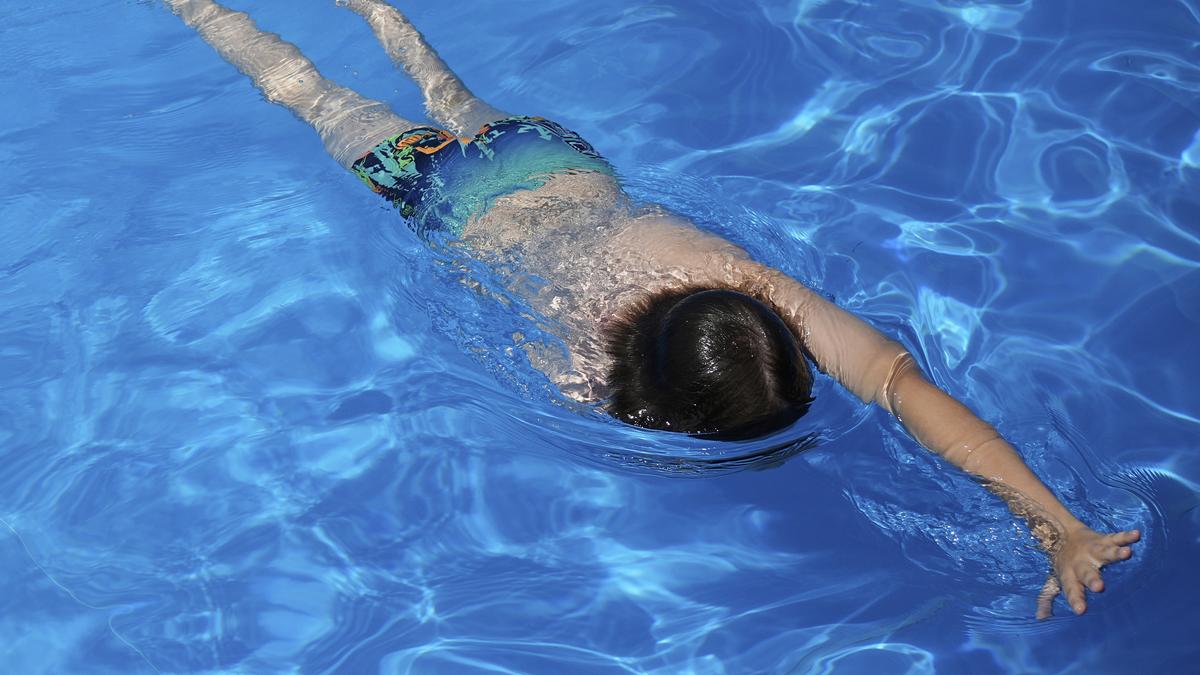A 2023 CDC report tracked more than 200 pool-associated outbreaks over a four-year period. But a few basic precautions can ward off these dangers |Image used for representational purpose only
| Photo Credit: AP
On hot summer days, few things are more refreshing than a dip in the pool. But have you ever wondered if the pool is as clean as that crystal blue water appears?
As an immunologist and infectious disease specialist, I study how germs spread in public spaces and how to prevent the spread. I even teach a course called “The Infections of Leisure” where we explore the risks tied to recreational activities and discuss precautions, while also taking care not to turn students into germophobes.
Swimming, especially in public pools and water parks, comes with its own unique set of risks — from minor skin irritations to gastrointestinal infections. But swimming also has a plethora of physical, social and mental health benefits. With some knowledge and a little vigilance, you can enjoy the water without worrying about what might be lurking beneath the surface.

The reality of pool germs
Summer news headlines and social media posts often spotlight the “ick-factor” of communal swimming spaces. These concerns do have some merit.
The good news is that chlorine, which is widely used in pools, is effective at killing many pathogens. The not-so-good news is that chlorine does not work instantly – and it doesn’t kill everything.
Every summer, the Centers for Disease Control and Prevention issues alerts about swimming-related outbreaks of illness caused by exposure to germs in public pools and water parks. A 2023 CDC report tracked over 200 pool-associated outbreaks from 2015 to 2019 across the U.S., affecting more than 3,600 people. These outbreaks included skin infections, respiratory issues, ear infections and gastrointestinal distress. Many of the outcomes from such infections are mild, but some can be serious.

Germs and disinfectants
Even in a pool that’s properly treated with chlorine, some pathogens can linger for minutes to days. One of the most common culprits is Cryptosporidium, a microscopic germ that causes watery diarrhea. This single-celled parasite has a tough outer shell that allows it to survive in chlorine-treated water for up to 10 days. It spreads when fecal matter — often from someone with diarrhea — enters the water and is swallowed by another swimmer. Even a tiny amount, invisible to the eye, can infect dozens of people.
Another common germ is Pseudomonas aeruginosa, a bacterium that causes hot tub rash and swimmer’s ear. Viruses like norovirus and adenovirus can also linger in pool water and cause illness.
Swimmers introduce a range of bodily residues to the water, including sweat, urine, oils and skin cells. These substances, especially sweat and urine, interact with chlorine to form chemical byproducts called chloramines that may pose health risks.
These byproducts are responsible for that strong chlorine smell. A clean pool should actually lack a strong chlorine odor, as well as any other smells, of course. It is a common myth that a strong chlorine smell is a good sign of a clean pool. In fact, it may actually be a red flag that means the opposite – that the water is contaminated and should perhaps be avoided.

How to play it safe at a public pool
Most pool-related risks can be reduced with simple precautions by both the pool staff and swimmers. And while most pool-related illnesses won’t kill you, no one wants to spend their vacation or a week of beautiful summer days in the bathroom.
These 10 tips can help you avoid germs at the pool:
-
Shower before swimming. Rinsing off for at least one minute removes most dirt and oils on the body that reduce chlorine’s effectiveness.
-
Avoid the pool if you’re sick, especially if you have diarrhea or an open wound. Germs can spread quickly in water.
-
Try to keep water out of your mouth to minimize the risk of ingesting germs.
-
Don’t swim if you have diarrhea to help prevent the spread of germs.
-
If diagnosed with cryptosporidiosis, often called “crypto,” wait two weeks after diarrhea stops before returning to the pool.
-
Take frequent bathroom breaks. For children and adults alike, regular bathroom breaks help prevent accidents in the pool.
-
Check diapers hourly and change them away from the pool to prevent fecal contamination.
-
Dry your ears thoroughly after swimming to help prevent swimmer’s ear.
-
Don’t swim with an open wound – or at least make sure it’s completely covered with a waterproof bandage to protect both you and others.
-
Shower after swimming to remove germs from your skin.
Lisa Cuchara, Professor of Biomedical Sciences, Quinnipiac University
(This article is republished from The Conversation under a Creative Commons license. Read the original article here: https://theconversation.com/how-germy-is-the-public-pool-an-infectious-disease-expert-weighs-in-on-poop-pee-and-perspiration-and-the-deceptive-smell-of-chlorine-260996 )
Published – July 27, 2025 07:18 pm IST
